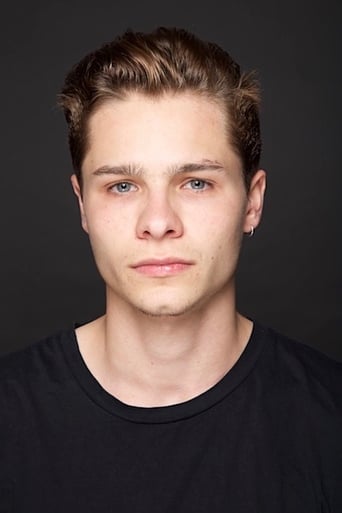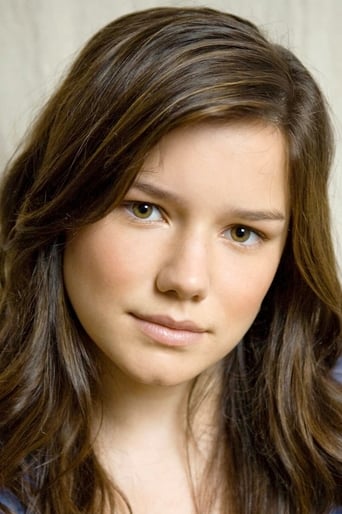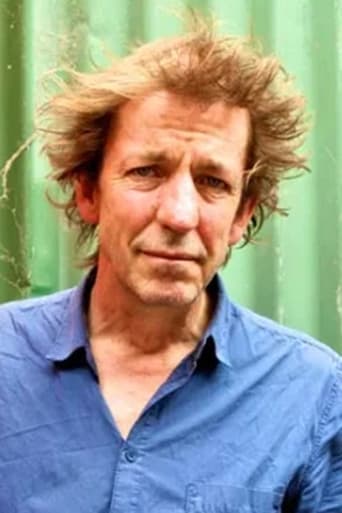VividSimon
Simply Perfect
SnoReptilePlenty
Memorable, crazy movie
AshUnow
This is a small, humorous movie in some ways, but it has a huge heart. What a nice experience.
Deanna
There are moments in this movie where the great movie it could've been peek out... They're fleeting, here, but they're worth savoring, and they happen often enough to make it worth your while.
troymilliken
A young boy learns what it means to be a man. This is the summary that I gleaned from watching. I believe the focus is to be on the boy the whole movie. He learns from his dad. He learns from the strangers. He learns from his sister. You must keep your focus on the boy, or the movie can be a bore and you can end up mislead. He trusted the strangers, but got betrayed. His trust came back full circle with his dad. He learns from the guy at the end of the movie what it means to be a man. You know he learned what it means to be a man by his last look in the movie. Look at his eyes. He has the eye of the tiger. Fear has been removed. He lived his life in fear, and now he has courage to face anything because he's been through everything.
belyake
I took my son to see this movie at the Australian Cinema Festival at the London Barbican earlier this year and we were both really moved by it. The entire theatre was gasping for breath at the end and many had tears in their eyes. Very powerful stuff. We immediately ordered the DVD to share with friends here.I felt compelled to write a review after seeing an earlier posting and reading back through some of the reviews of the film on other sites, to find either thoughtful praise on the one hand or vitriolic ranting on the other, and this was a curious thing because it's really a very simple, powerful film.I'm old enough to remember the reactions to Wake in Fright. Now regarded as an Australian classic the first responses were an explosion of anger. I left Australia for the UK a few years after and always felt that we had an almost pathological inability as a nation to shine a light on ourselves, and that's really what this film is doing. Being a regular at the London Australian Film Festival I've watched with some pride the change happening with brave independent films over the last few years, scratching at the surface of the Australian national psyche, and was very saddened to find in some of the Australian reviews the same old knee-jerk disdain for intellect and anything that doesn't paint the country in a noble light. Certainly the multiple ironies at work in the character who says the wonderful line 'bet you thought it was going to be all Henry bloody Lawson' seem to have gone over the heads of some people.Watching the DVD extras I found there was a different opening that was taken out - why isn't explained - that sets up the characters better: the mother is present in the original and the film now appears to start ten minutes in. This may help some people access the film a little easier, but regardless of this the film works so magnificently as a dark, visceral thriller anyway that it's really hard to see how people could have a hard time with it unless they're responding with a political agenda. I notice that Christos Tsiolkas is receiving the same kind of responses for The Slap and in an interview in today's Guardian he celebrates this, saying that if you can move an audience to those extremes of anger on one side and thoughtful praise on the other you're doing something right because you're forcing people's insecurities to the surface. The filmmakers of Lucky Country should be equally proud and I wouldn't be at all surprised if this brave film finds itself being lauded in a few years' time in the same way Wake in Fright has been.For anybody interested in a genuinely thoughtful dialogue about Australia and Australians' place in it this really is a must-see. And if you happen to like unusual thrillers with great visual beauty and a considerable amount of menace this film is for you.
picturewithsound
This film was seriously the worst that I had seen all year, my house-mate brought it home from the library as he wants to be a film maker and so is among the only demographic that forces themselves to watch Australian movies. This one danced across the spectrum- from laughable to absurd to simply pointless. It was a very transparent film that clearly showed the screenwriter as a troglodyte-pseudo-intellectual, who reads himself to confidence, then falsely assigns himself the role of preacher, peppering the screenplay with little sweet-nothings that are so trivial and out of place, even the lowly bushmen I imagine the film was made for will be deterred.There are some beautiful one-liners in there that the director really had no excuse to keep from the cutting room floor, namely "What is it little-man? You think you've got what it takes!?" , as well as a character who has a real misunderstanding of Henry Lawson's poetry to share with the world, implying that it was romantic and idealistic, where even the free internet encyclopedia knows better- "Lawson had no romantic illusions about a 'rural idyll'."[7] As Elder continues, his grim view of the outback was far removed from "the romantic idyll of brave horsemen and beautiful scenery depicted in the poetry of 'The Banjo' Paterson".add to that a thick layer of repetitive religious rubbish and just about every poorly-written, poorly-timed interaction that the characters share, and you get a film that was very unfair on the actors who trusted the writer/ director, and tried their hardest.yep, a real piece of work.
Likes_Ninjas90
In 1902, widowed father Nat (Aden Young), a man of extreme religious beliefs, lives with his son Tom (Tobey Wallace) and daughter Sarah (Hanna Mangan Lawrence) on a farm in the outback of South Australia. They are living poorly, with very little money, most of which is spent on shells for a hunting rifle. One day, a group of three men arrive at their cabin. They are Henry (Pip Miller), Carver (Neil Pigot) and Jimmy (Eamon Farren), who is extremely ill. The men plead to be allowed to stay in the home and Nat soon agrees. It is revealed that the men spent time in the Boer War and that the youngest man Jimmy is hiding something.This is a very bizarre and grim film and one that is from the outset extremely confusing and frustrating. It is difficult to describe much of the film without spoiling the plot. One of the first conversations in the film is between the father and a rabbiter and it is indicative of the same confusing dialogue that hinders much of the film. The dialogue, along with the cold visuals, isolates the audience from the sense of place and the characters. This is most likely intentional but at the very heart of the film is merely a hostage situation. It is quite disappointing how much of the film resides with the audiences expectations of the arrival of the three men. We know that there is something extremely peculiar and sinister about them. The film attempts to subvert our expectations by clouding the motivation of the three men and their alliances to each other but this is only serves to make the film more confusing and incomprehensible.It is particularly difficult to sympathise with any of the characters in the story too, due to the heavy-handedness of many of the performances, bar the children. While one can respect Nat for trying to sustain the household as a single parent, his odd behaviour such as threatening his children with a knife and his religious extremities, make him intolerable. Both of the children are more likable because of their innocence and the emotion they show, but like all of the characters, the script doesn't allow a great deal of development. The performances of the three riders are all fine as well, particular Neil Pigot, who is unsubtle in his unpleasantness, but he is still effective in his creepy, unnerving nature. It is remains disappointing that these performances are somewhat wasted given we never truly come to understand these men.The most appealing asset of the film is the cinematography. Director Kriv Stenders stated that he wanted to subvert the traditional look of the Australian outback from horizontal planes and dusty landscapes in favour of something that was damp, claustrophobic and Gothic. Much of the film, except for the overly dark cabin scenes, is actually very beautifully photographed on location in South Australia. The same effort to tailor the script to the look of the film should have been given to the narrative as well however.There are a number of strange moments in this film that are baffling and sometimes lead to misdirection in the characterisation. In the first half of the film the three riders build a small cage outside of the home for the family. After bashing Nat and locking him in the cage, Henry begins to tell a story to Tom about his past exploits. Yet when he realises that Nat is suffering from jaw lock he wrenches the cage open and pulls Nat out as if to help him. The story Henry tells about how he burnt down a home and then dragged the family behind a cart, makes just as little sense. It is impossible not to question his motivations. Similarly, after Nat yells at Tom for wasting the shots of the rifle, Tom proceeds to stand out the front of the home in front of his sister and his father and urinate on the ground. The re-emergence of characters that were thought to be dead is utterly bizarre and contrived too. It is a film that rarely makes sense.Lucky Country is too confusing and odd to be truly entertaining. The long winded conversations and senseless motivations of the characters leave the film emotionally cold and unrewarding. While it may seem like it is initially preparing to be a highly unusual and unique film, it quickly succumbs to many of the audiences expectations about the strangers, allowing the film to degenerate into a standard thriller. Although there might be a greater subtext under the surface of the film, it is too inaccessible and too bleak for the audience to truly care and understand what it might be.



